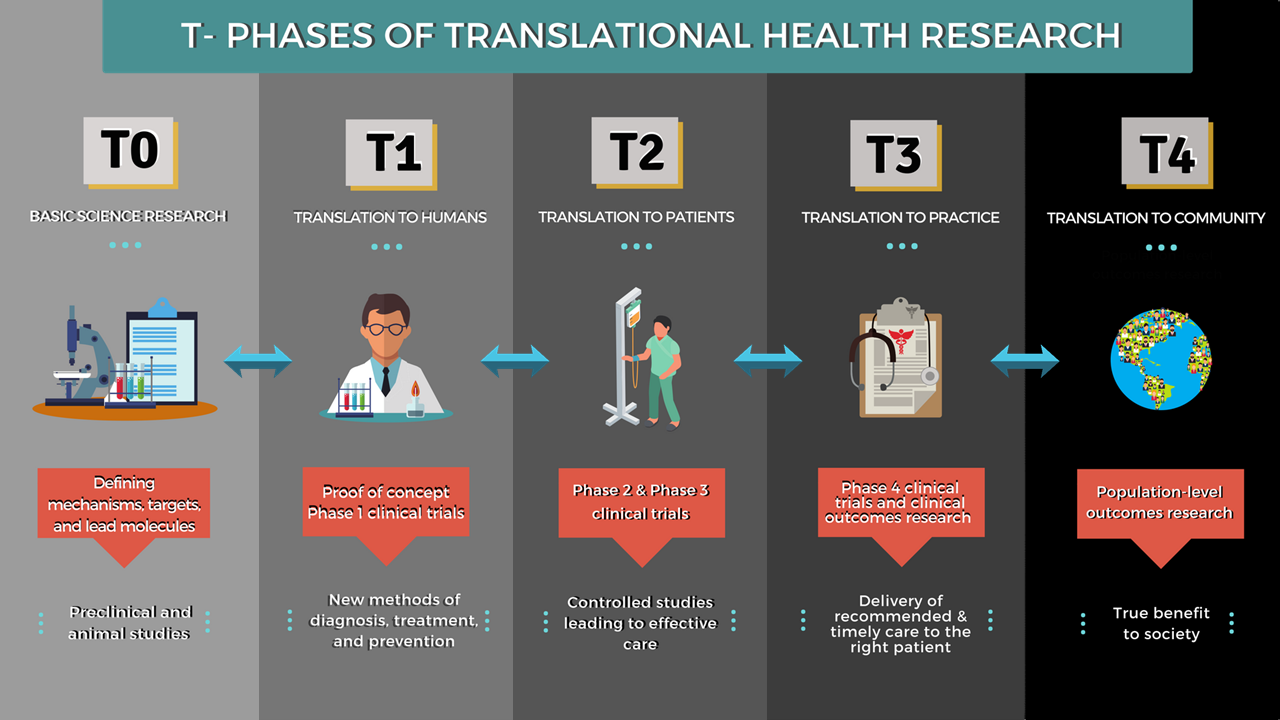What is Translational Research?
Translational research includes two areas of translation. One is the process of applying discoveries generated during research in the laboratory, and in preclinical studies, to the development of trials and studies in humans. The second area of translation concerns research aimed at enhancing the adoption of best practices in the community. Cost-effectiveness of prevention and treatment strategies is also an important part of translational science.**

T0
T0 research includes basic biomedical research, including preclinical and animal studies. This type of research does not include interventions with human subjects.
T1
T1 research expedites the movement between basic research and patient-oriented research that leads to new or improved scientific understanding or standards of care. Examples of T1 research are drug development, pharmacogenomics, and some studies of disease mechanisms and research into new areas such as genetics, genomics, and proteomics.
T2
T2 research facilitates the movement between patient-oriented research and population-based research that leads to better patient outcomes, the implementation of best practices, and improved health status in communities. Examples of T2 are clinical epidemiology, health services (outcomes) research, and the newly developing methodology of community-based participatory research.
T3
T3 research promotes interaction between laboratory-based research and population-based research to stimulate a robust scientific understanding of human health and disease. Examples of T3 are emerging disciplines such as molecular and genetic epidemiology. T3 research highlights, for instance, how research in populations informs hypotheses that can be tested in basic science laboratories and how biomarkers in animal models can translate into population-based screening tools.
T4
T4 research focuses on population-level outcomes, including translation to communities, including impacting policy and public health outcomes.
**source: grants.nih.gov